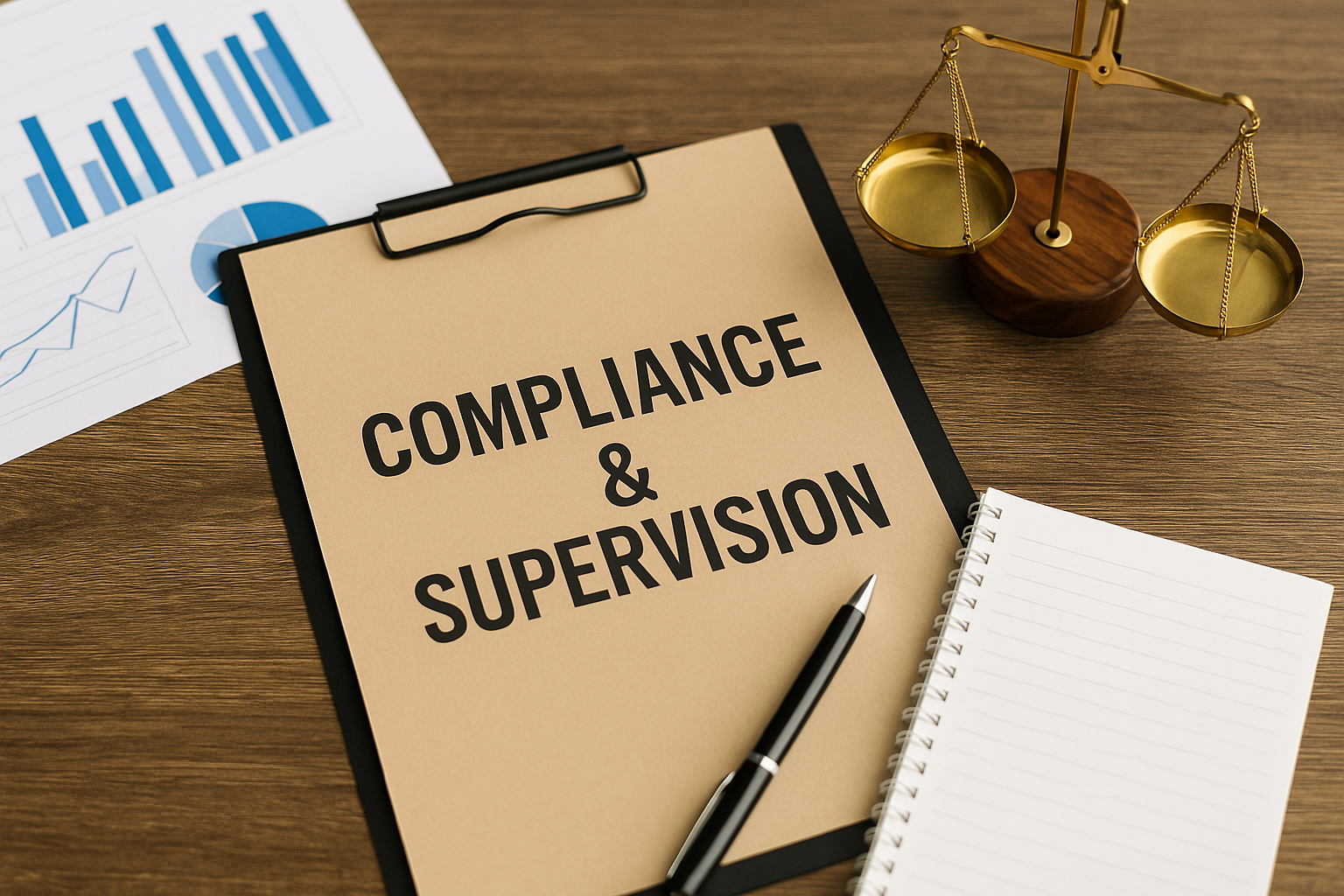Compliance & Supervision Obligations in Turkey: A Legal Perspective for Financial Institutions
🔍 Introduction
In the modern financial world, compliance is no longer a mere legal formality—it has become an essential pillar of corporate governance and risk management. Especially in emerging markets like Turkey, where regulators actively monitor the financial ecosystem, non-compliance can trigger severe administrative, civil, and even criminal liabilities.
This article offers a comprehensive analysis of compliance and supervision obligations under Turkish law, focusing on financial institutions such as banks, investment firms, leasing companies, fintech platforms, and crypto asset service providers. It outlines legal foundations, institutional structures, reporting requirements, enforcement mechanisms, and recent developments in the regulatory landscape.
1️⃣ Legal Framework for Compliance in Turkey
Compliance obligations in Turkey are derived from a complex matrix of sector-specific laws, cross-border standards, and regulatory communiqués.
📜 Key Legislation:
- Banking Law (Law No. 5411)
- Capital Markets Law (Law No. 6362)
- Financial Leasing, Factoring and Financing Companies Law (Law No. 6361)
- Law on Prevention of Laundering Proceeds of Crime (Law No. 5549 – MASAK)
- Personal Data Protection Law (Law No. 6698 – KVKK)
- Turkish Commercial Code (Law No. 6102)
These laws mandate that financial institutions adopt internal control systems, designate compliance officers, and implement due diligence mechanisms to meet both national and international compliance obligations.
2️⃣ Who is Subject to Compliance Obligations?
The following institutions are directly subject to regulatory compliance duties:
- Deposit and participation banks
- Investment firms and brokerage houses
- Portfolio management companies
- Financial leasing and factoring companies
- Asset management companies
- Crypto asset service providers
- Insurance companies (in limited areas)
- Publicly listed corporations on Borsa Istanbul
3️⃣ Institutional Compliance Structures
Under Turkish law, regulated entities must establish robust internal systems for compliance and supervision.
✅ Minimum Requirements:
- A dedicated Compliance Department, reporting directly to senior management
- Separation from Internal Audit and Risk Management functions
- Appointment of a Compliance Officer, approved by BDDK or SPK
- Documentation and periodic internal training on compliance protocols
These measures must be commensurate with the institution’s size, complexity, and risk exposure.
4️⃣ Core Compliance Responsibilities
A. Know Your Customer (KYC)
Financial institutions are required to verify and retain the identities of their clients, understand beneficial ownership structures, and assess the source of funds.
B. Suspicious Transaction Reporting (STR)
Entities must report any transactions suspected of being related to money laundering or terrorist financing to MASAK within 10 business days. Failure to comply may result in criminal penalties.
C. Capital Adequacy Compliance
Banks and certain financial firms must meet Basel III standards for capital adequacy, including:
- Capital Adequacy Ratios (CAR)
- Liquidity Coverage Ratio (LCR)
- Leverage Ratio
D. Corporate Governance & Transparency
Under the Capital Markets Board (SPK), publicly listed companies must disclose material information, maintain accurate financial records, and comply with corporate governance principles, including independent board members and audit committees.
5️⃣ Supervision and Enforcement Mechanisms
🧾 A. Internal Audit
All financial institutions must implement internal audit mechanisms. At least one full audit cycle must be completed annually, with reports submitted to the Board of Directors.
🕵️♂️ B. Independent Audit
For publicly listed and large-scale institutions, independent external audits are mandatory. These audits focus not only on financial accuracy but also on the effectiveness of compliance procedures.
📋 C. Regulatory Supervision
| Regulator | Scope |
|---|---|
| BDDK (Banking Regulation and Supervision Agency) | Banks and non-bank financial institutions |
| SPK (Capital Markets Board) | Securities, investment services, and listed companies |
| MASAK (Financial Crimes Investigation Board) | AML/CTF enforcement |
| KVKK Board | Data protection compliance |
| Ministry of Trade | E-commerce and consumer compliance |
6️⃣ Sanctions for Non-Compliance
Non-compliance can lead to administrative, criminal, and civil sanctions:
⚠️ Administrative Sanctions:
- Monetary fines ranging from ₺500,000 to ₺50 million
- Temporary or permanent revocation of operating licenses
- Public disclosure of violations (reputation damage)
⚖️ Criminal Sanctions:
- Failure to file STRs (Article 15, Law No. 5549): Imprisonment from 1 to 3 years
- Forgery of documents (Article 204, Turkish Penal Code): Imprisonment from 2 to 5 years
🧑⚖️ Civil Liability:
- Damages payable to investors for loss due to compliance failures
- Shareholder lawsuits in cases of corporate governance breaches
7️⃣ Emerging Trends: Digital Compliance & ESG
🌐 RegTech & Digital Compliance
The rise of Regulatory Technology (RegTech) has streamlined many compliance functions:
- Real-time API-based reporting to BDDK/SPK
- AI-supported fraud detection systems
- Blockchain-based KYC/AML solutions
- KVKK-compliant data storage systems
♻️ ESG Disclosure Requirements
The SPK introduced ESG (Environmental, Social, Governance) reporting as mandatory for certain public companies in 2024. Firms must assess and report on their:
- Environmental footprint
- Human capital management
- Board diversity and accountability
8️⃣ International Compliance Alignment
Turkey aligns its regulatory infrastructure with several global compliance frameworks:
- FATF (Financial Action Task Force): AML/CTF compliance
- OECD Guidelines: Corporate responsibility and tax transparency
- Basel Committee: Capital adequacy and risk management
Global investors expect full compliance with these standards, and failure can impact sovereign risk ratings and foreign capital inflows.
🔚 Conclusion
Compliance and supervision are not optional features—they are the cornerstones of sustainable corporate operations in the financial sector. In Turkey, regulators like BDDK, SPK, and MASAK enforce a multi-layered regime that imposes strict obligations on all financial actors.
For financial institutions, a proactive compliance culture combined with technology-backed internal controls can minimize legal risks, enhance reputation, and ensure long-term profitability.
In a market where compliance equals credibility, those who embrace regulation will lead, while others risk obsolescence.
INTERN LAW FACULTY STUDENT
YAĞMUR YORULMAZ

Yanıt yok